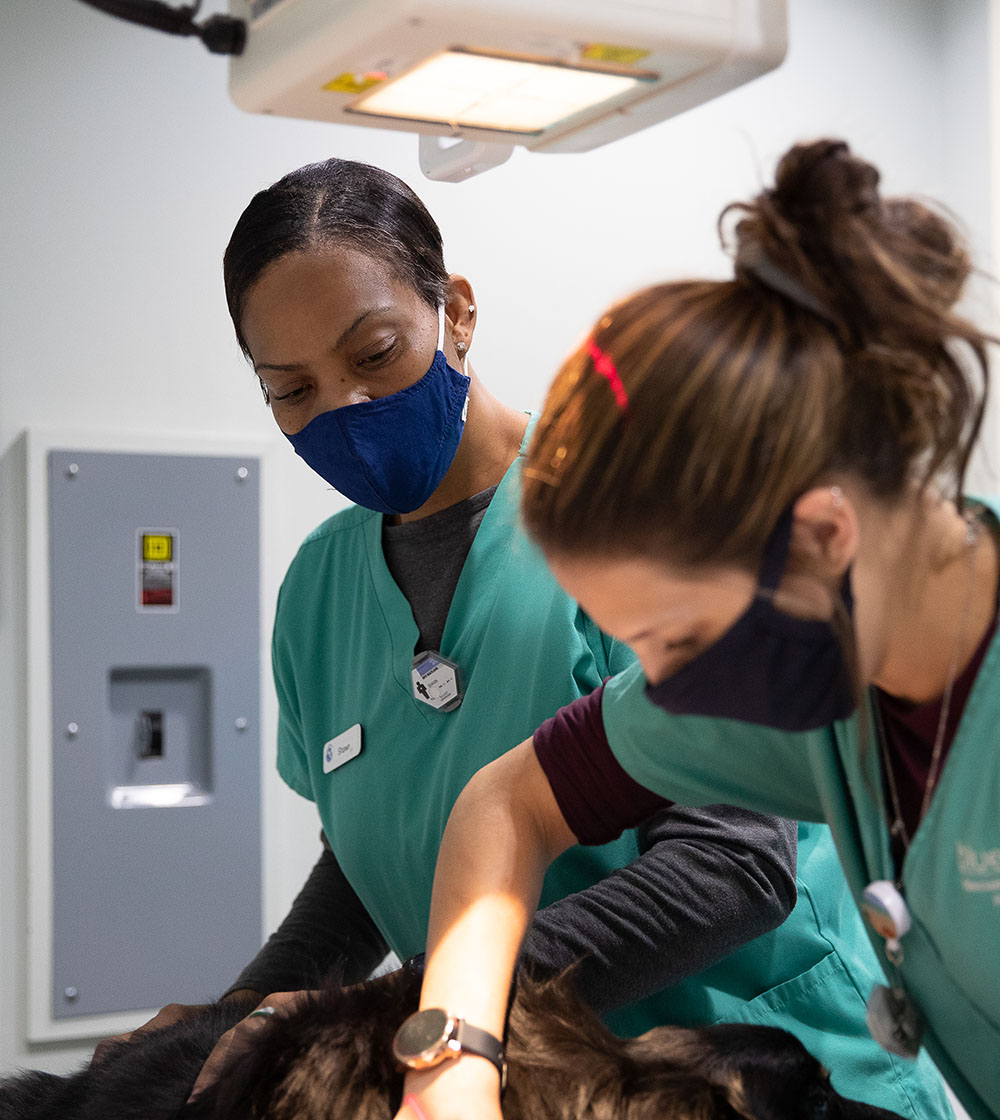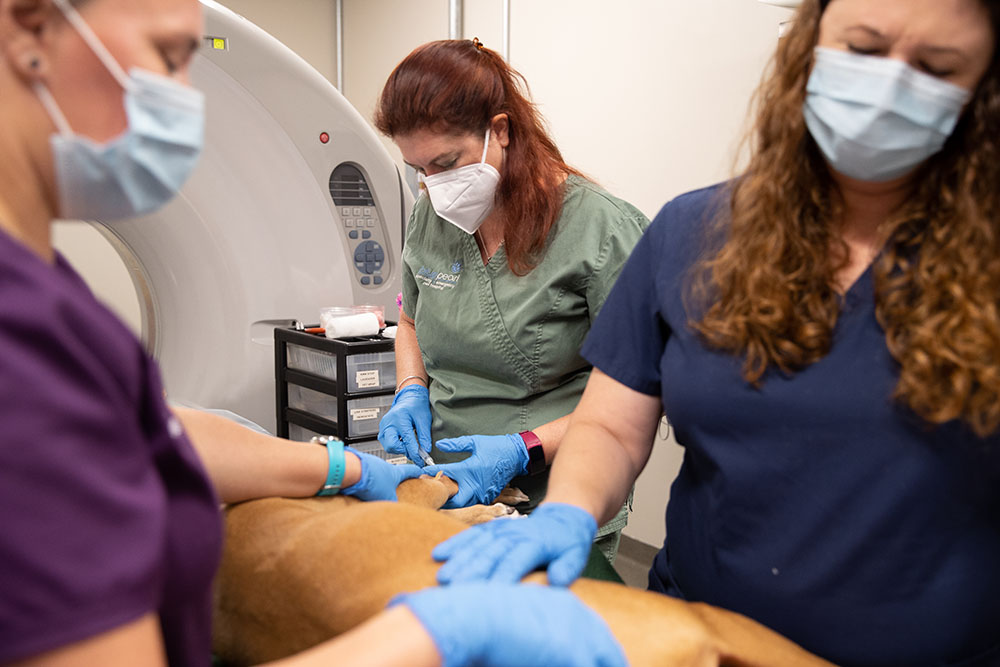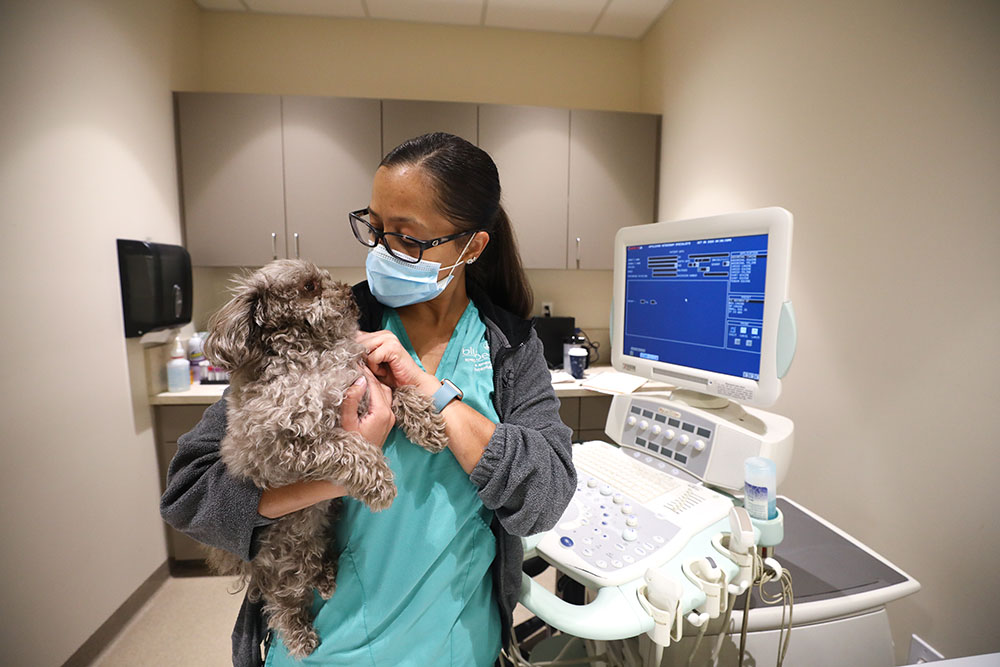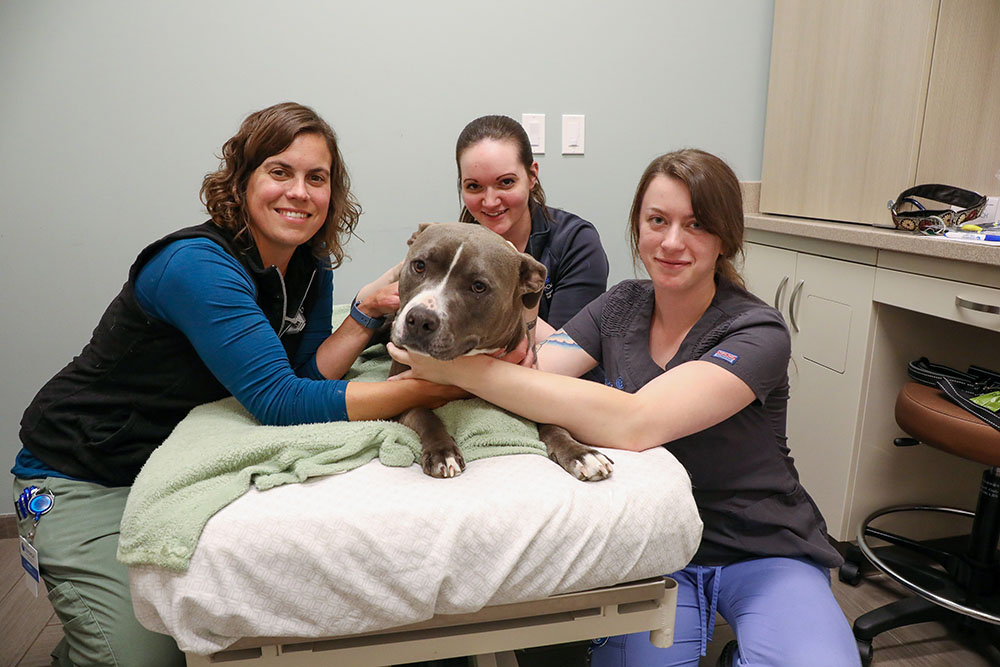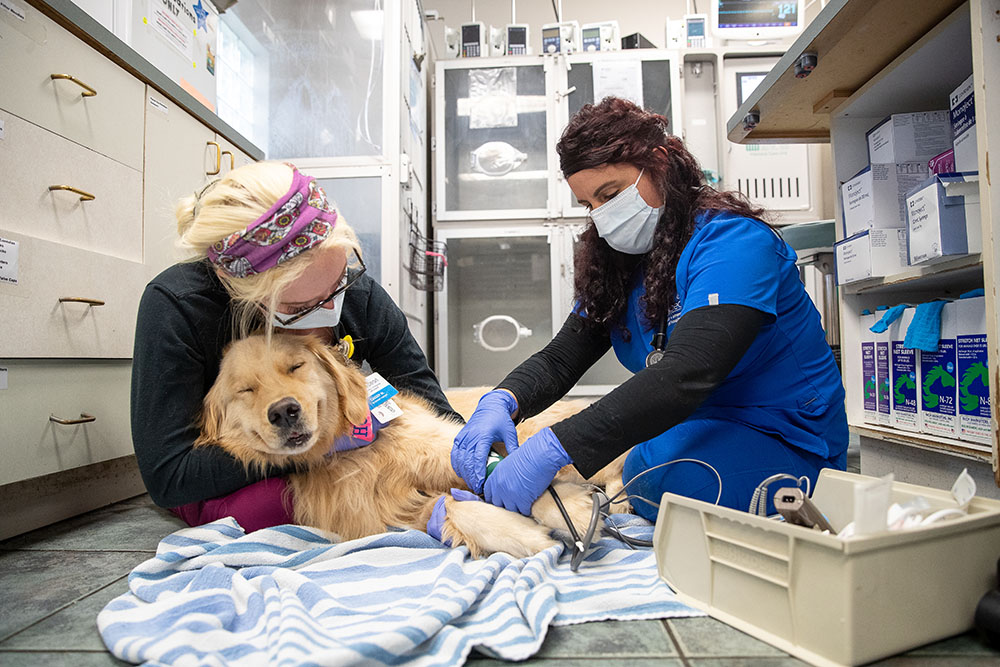Every donor is a hero.
Why we need blood donors.
Pet & Owner Benefits
BluePearl Blood Bank Locations
Donor Eligibility Requirements
Pet blood donor FAQs.
Like humans, pets may require lifesaving transfusions when undergoing surgery or suffering from trauma (after an automobile accident and other injuries), auto-immune disease, heat stroke, or other illnesses. Our blood banks are dedicated to providing a safe and plentiful blood supply to animals in need.
Your pet's body weight correlates with the blood volume circulating in their blood vessels. This is why there are strict bodyweight requirements to ensure it is safe for them to donate.
For canines, the standard donation volume is 450mls (approximately one pint of blood).
For felines, the standard donation volume is 52mls (two ounces).
Animals have different blood types from humans, related specifically to their species. Determination of blood type is incredibly important prior to transfusions to avoid potential adverse transfusion reactions.
Blood donation is a short, painless process. Although uncommon, there are some risks associated with pets donating blood, including but not limited to swelling, bruising or clipper burn at the needle site, prolonged sedation and lethargy after receiving a sedative, diarrhea, vomiting, or in rare cases, hypotension. All pets are continuously monitored throughout donation.
Part of the blood donor participant criteria taken into consideration is temperament and personality.
Friendly and cooperative pets make for the best donors, so canines with a good temperament may not require sedatives to keep them calm, but some dogs will need minimal sedation.
Every feline donor is given a sedative to minimize levels of stress. All pets are monitored continuously throughout the donation process regardless of whether they received sedation.
If a sedative is given, your pet may experience prolonged lethargy, but it will subside. By following best practices and continuous monitoring throughout the donation, side effects are rare.
Most dogs can safely donate every four weeks; however, most programs recommend a minimum of eight weeks between donations.
A minimum of 10 weeks is recommended between feline blood donations.
Just as in people, each pet recovers differently after a donation.
For dogs, it is recommended to restrict their activity for at least 24 hours. Using a harness instead of a neck collar is encouraged to avoid applying pressure to the neck.
As an added safety measure, felines are given subcutaneous or intravenous fluids. It is recommended to monitor and limit their activity (as much as possible) while they recover from any sedatives and blood donation.
Both cats and dogs can immediately resume their usual water and feeding regimens.
Due to the considerable costs associated with health screening, we request a commitment of donations at least four times per year for a minimum of one year.
We ask that a pet is not enrolled in any other blood donor programs during their participation in the BluePearl Blood Donor Program.

